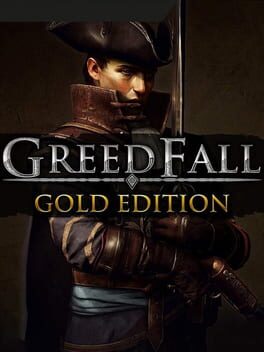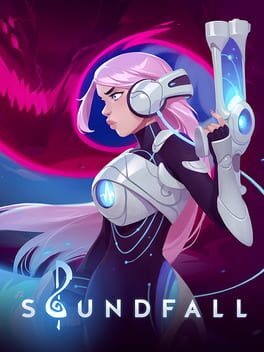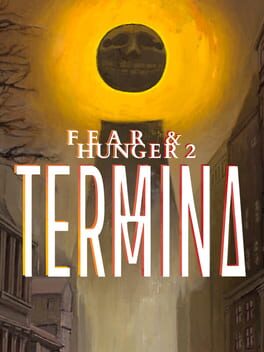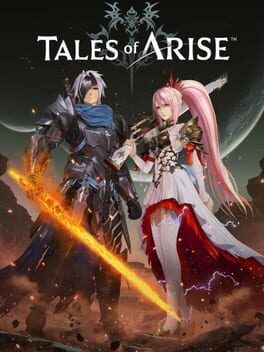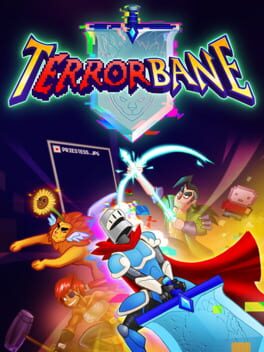Gui1337
Developed by the French studio specialized in RPGs: Spiders, Greedfall presents itself as a bold blend of different inspirations gathered into a quite peculiar formula. Elements from Dragon Age, The Witcher, and even Assassin's Creed are present here, generating a "curious" final experience, so to speak.
The game features a creatively designed world inspired by European baroque art, mixing elements from the 17th century with a fantastical universe full of mystical creatures. Here, players are invited to take on the role of De Sardet, an emissary of the Merchant Congregation tasked with exploring an island in search of a cure for a disease plaguing the continent.
The created universe is much richer than it appears at first glance, being by far my favorite aspect of the game. Its story is filled with discoveries and governmental intrigues among factions in constant conflict, where players have total freedom to choose multiple paths to follow as they delve into its vast lore.
About the overall gameplay, it is marked by several pros and cons. Although the game gives you total freedom to interact with all its regions and characters, it can be considered a genuine walking simulator, as what you'll mostly do is walk back and forth, talking to NPCs who will give you missions consisting of talking to a target, running about 300 meters, going to another region, running again, and so on until the quest is completed. Not even with fast travel does this process become minimally enjoyable; it is by far the worst thing the game has to offer. The combat system also stands out as one of the aspects I like the least; I find it clunky and unnatural, whether in fights against humans or monsters, in addition to firearms being completely unbalanced (if you have a lot of ammunition, your character becomes practically invincible). On the other hand, I greatly appreciate its Boss Fights, which go in a different direction by presenting surprisingly fun mechanics.
It took me quite a while to grasp the appeal that the game aims to convey; it only came after about ten hours of gameplay, where I finally began to understand its true proposal. Greedfall is an extensive game that often tests your patience; however, it is worth giving it a chance and immersing yourself in its content. There are several skills to be learned, three different classes to specialize in, several factions to ally with, interesting political plots, and an engaging storyline.
Regarding the DLC (The De Vespe Conspiracy), I consider it entirely forgettable, with nothing being remarkable, reduced to just minimal additional content. It only adds a new area and a type of enemy. The plot is predictable, and I describe it as just a poorly made side quest.
Overall, I would recommend Greedfall to those looking for an RPG with a different theme. Despite my experience being marked by several ups and downs, the game managed to entertain me quite a bit.
The game features a creatively designed world inspired by European baroque art, mixing elements from the 17th century with a fantastical universe full of mystical creatures. Here, players are invited to take on the role of De Sardet, an emissary of the Merchant Congregation tasked with exploring an island in search of a cure for a disease plaguing the continent.
The created universe is much richer than it appears at first glance, being by far my favorite aspect of the game. Its story is filled with discoveries and governmental intrigues among factions in constant conflict, where players have total freedom to choose multiple paths to follow as they delve into its vast lore.
About the overall gameplay, it is marked by several pros and cons. Although the game gives you total freedom to interact with all its regions and characters, it can be considered a genuine walking simulator, as what you'll mostly do is walk back and forth, talking to NPCs who will give you missions consisting of talking to a target, running about 300 meters, going to another region, running again, and so on until the quest is completed. Not even with fast travel does this process become minimally enjoyable; it is by far the worst thing the game has to offer. The combat system also stands out as one of the aspects I like the least; I find it clunky and unnatural, whether in fights against humans or monsters, in addition to firearms being completely unbalanced (if you have a lot of ammunition, your character becomes practically invincible). On the other hand, I greatly appreciate its Boss Fights, which go in a different direction by presenting surprisingly fun mechanics.
It took me quite a while to grasp the appeal that the game aims to convey; it only came after about ten hours of gameplay, where I finally began to understand its true proposal. Greedfall is an extensive game that often tests your patience; however, it is worth giving it a chance and immersing yourself in its content. There are several skills to be learned, three different classes to specialize in, several factions to ally with, interesting political plots, and an engaging storyline.
Regarding the DLC (The De Vespe Conspiracy), I consider it entirely forgettable, with nothing being remarkable, reduced to just minimal additional content. It only adds a new area and a type of enemy. The plot is predictable, and I describe it as just a poorly made side quest.
Overall, I would recommend Greedfall to those looking for an RPG with a different theme. Despite my experience being marked by several ups and downs, the game managed to entertain me quite a bit.
2022
A promising proposal for a dungeon crawler with rhythm gameplay, but it is completely destroyed by lazy and poorly executed implementation.
In it, we play as one of the 5 characters who are teleported to a world where we have to end the present dissonance and thus return to the harmony of music. It's a standard premise that initially manages to hold up, but it becomes increasingly tedious as we progress through its monotonous story.
The game is phased, with 10 available worlds, each having 10 levels to explore (in addition to their bonus stages), which may seem like a lot of content at first, but soon becomes one of its biggest flaws, as the developers prioritized quantity over quality. All its worlds feature identical enemies and scenarios, only with reused templates and skins with different colors, as there is no variety whatsoever in the level design / gameplay. There are only 2 Boss Fights for over 100 repeated stages that will take some exhausting hours to complete, and even in its multiplayer mode, they are not enjoyable. Furthermore, with a huge number of stages and various music tracks, we encounter the game's biggest flaw, the note mapping. In some levels, this might be forgivable, however, in the majority, it has become a problem that ruins the immersion and the main element of this type of game: the rhythm. When the key mechanic is broken in this way, we get the product that is Soundfall.
Another glaring mistake is the issue of BPM, as in the various musical styles applied, there is a variation in the BPM of the stages, which is not necessarily bad, the problem arises when in some levels we have a BPM below 160, causing not only the shots of your character and their dodges to come out at delayed intervals, but also affecting the duration of the stage and the fight against enemies, as fewer shots mean lower DPS, hindering the fun with the game.
I believe that if the game were shorter and had minimal variety in mechanics, it could be decent. But, in a general assessment, Soundfall is one of the worst games I've ever played, being in my view a disaster in everything it tried to propose.
In it, we play as one of the 5 characters who are teleported to a world where we have to end the present dissonance and thus return to the harmony of music. It's a standard premise that initially manages to hold up, but it becomes increasingly tedious as we progress through its monotonous story.
The game is phased, with 10 available worlds, each having 10 levels to explore (in addition to their bonus stages), which may seem like a lot of content at first, but soon becomes one of its biggest flaws, as the developers prioritized quantity over quality. All its worlds feature identical enemies and scenarios, only with reused templates and skins with different colors, as there is no variety whatsoever in the level design / gameplay. There are only 2 Boss Fights for over 100 repeated stages that will take some exhausting hours to complete, and even in its multiplayer mode, they are not enjoyable. Furthermore, with a huge number of stages and various music tracks, we encounter the game's biggest flaw, the note mapping. In some levels, this might be forgivable, however, in the majority, it has become a problem that ruins the immersion and the main element of this type of game: the rhythm. When the key mechanic is broken in this way, we get the product that is Soundfall.
Another glaring mistake is the issue of BPM, as in the various musical styles applied, there is a variation in the BPM of the stages, which is not necessarily bad, the problem arises when in some levels we have a BPM below 160, causing not only the shots of your character and their dodges to come out at delayed intervals, but also affecting the duration of the stage and the fight against enemies, as fewer shots mean lower DPS, hindering the fun with the game.
I believe that if the game were shorter and had minimal variety in mechanics, it could be decent. But, in a general assessment, Soundfall is one of the worst games I've ever played, being in my view a disaster in everything it tried to propose.
In its renowned sequel, Fear & Hunger 2: Terminus maintains the foundations that defined the success of its predecessor, but now enhances the experience through improvements in gameplay, map design, mechanics, and characters.
The story presents a completely different proposition, where 14 characters are forced to participate in a macabre Death Game to achieve their individual goals. The plot remains well-written/complex, and its difficulty continues with the challenging level that characterizes it, as it is not a simple, let alone an easy game. Progression is built through trial and error until the player becomes accustomed to the dynamics of the objectives to be completed, thus the game continues to playfully disregard the player, being intentionally cruel and stressful.
Its oppressive atmosphere creates an immersive experience for those seeking a game outside the so-called traditional standards, even though it may not please everyone due to the more graphic themes and content presented.
The compelling characters are part of the game's greater essence, each with a unique story, attractive personalities, notable charisma, and sensational interactions with each other.
Fear & Hunger Terminus does an excellent job of combining elements of horror, turn-based RPGs, and survival in its grotesque style. Although it still has some technical issues, such as general bugs, the fact that it doesn't crash on its own like the previous one is already a major differentiator.
For me, this second game has solidified its place as one of the best titles on RPG Maker, by far my favorite on the platform.
The story presents a completely different proposition, where 14 characters are forced to participate in a macabre Death Game to achieve their individual goals. The plot remains well-written/complex, and its difficulty continues with the challenging level that characterizes it, as it is not a simple, let alone an easy game. Progression is built through trial and error until the player becomes accustomed to the dynamics of the objectives to be completed, thus the game continues to playfully disregard the player, being intentionally cruel and stressful.
Its oppressive atmosphere creates an immersive experience for those seeking a game outside the so-called traditional standards, even though it may not please everyone due to the more graphic themes and content presented.
The compelling characters are part of the game's greater essence, each with a unique story, attractive personalities, notable charisma, and sensational interactions with each other.
Fear & Hunger Terminus does an excellent job of combining elements of horror, turn-based RPGs, and survival in its grotesque style. Although it still has some technical issues, such as general bugs, the fact that it doesn't crash on its own like the previous one is already a major differentiator.
For me, this second game has solidified its place as one of the best titles on RPG Maker, by far my favorite on the platform.
2021
It is indeed an excellent introduction for those who are unfamiliar with the franchise, as well as a great treat for long-time fans. The game raises the already established standards of the Tales series.
The story, as usual, will follow the most anime formula possible, in its first half showing the journey of a hero who needs to free the world, but it will shape itself into a much grander plot. Don't get me wrong, the initial part of the plot is really useful, especially in terms of exploring the kingdoms, however the second half disappoints by becoming excessively accelerated, where the lack of previous explanations combines into a final stretch that is more confusing than enlightening. .
Even with my appreciation for everything that Tales of Arise sets out to accomplish, it is undeniable that the game is not without flaws, quite the contrary, there are problems easily observed within the long hours offered to the player. Notable issues, such as the lack of a certain polish in some special animations, small bugs spread throughout the maps/combats, recycled enemies (to give you an idea, there are 25 base monsters that are repeated throughout the game, but with different skins, totaling more than 100 identical types, what changes are the colors), in addition to several empty areas that limit the interactivity of the world. Despite the flaws, many of these factors were particularly highlighted by me due to the excellent presentation of other aspects of the game, such as its extremely fun gameplay, its addictive combat system and its memorable Boss Fights, which add that epic layer full of positive exaggerations.
As for gameplay, which is its strongest point, the game innovates and improves on previous traditional battle systems, getting the customization of combos right. Combat is fluid, dynamic and strategic, avoiding any feeling of monotony due to the diversity of skills presented, in which each protagonist has a specific style to enjoy.
The characters enjoy an engaging development through the sketches, where the player can get to know each one better, although not deeply enough to become attached to their stories, they are standard but likeable characters. The striking soundtrack complements the atmosphere well (the openings are also sensational) and the beautiful graphics along with the art direction contribute to the overall immersion. It is undoubtedly a worthy title to celebrate 25 years of the "Tales of" series, being a rich addition to the JRPG genre.
The story, as usual, will follow the most anime formula possible, in its first half showing the journey of a hero who needs to free the world, but it will shape itself into a much grander plot. Don't get me wrong, the initial part of the plot is really useful, especially in terms of exploring the kingdoms, however the second half disappoints by becoming excessively accelerated, where the lack of previous explanations combines into a final stretch that is more confusing than enlightening. .
Even with my appreciation for everything that Tales of Arise sets out to accomplish, it is undeniable that the game is not without flaws, quite the contrary, there are problems easily observed within the long hours offered to the player. Notable issues, such as the lack of a certain polish in some special animations, small bugs spread throughout the maps/combats, recycled enemies (to give you an idea, there are 25 base monsters that are repeated throughout the game, but with different skins, totaling more than 100 identical types, what changes are the colors), in addition to several empty areas that limit the interactivity of the world. Despite the flaws, many of these factors were particularly highlighted by me due to the excellent presentation of other aspects of the game, such as its extremely fun gameplay, its addictive combat system and its memorable Boss Fights, which add that epic layer full of positive exaggerations.
As for gameplay, which is its strongest point, the game innovates and improves on previous traditional battle systems, getting the customization of combos right. Combat is fluid, dynamic and strategic, avoiding any feeling of monotony due to the diversity of skills presented, in which each protagonist has a specific style to enjoy.
The characters enjoy an engaging development through the sketches, where the player can get to know each one better, although not deeply enough to become attached to their stories, they are standard but likeable characters. The striking soundtrack complements the atmosphere well (the openings are also sensational) and the beautiful graphics along with the art direction contribute to the overall immersion. It is undoubtedly a worthy title to celebrate 25 years of the "Tales of" series, being a rich addition to the JRPG genre.
2022
A mega creative 2D RPG, where the main principle revolves around hunting bugs within the game itself.
You can clearly see all the effort the "Dev" put into making it such a unique and enjoyable experience. There are countless possibilities for choices, granting players the freedom to shape their own path in a more than chaotic narrative.
The gameplay is completely unpredictable, as you cannot foresee the next mechanic that will be implemented. This is due to the enormous amount of clear references to other popular franchises (Fnaf, Undertale, Resident Evil, Final Fantasy, etc.), with countless brilliant nods incorporated. As a result, the entire game is based on being a complete satire of the chosen style, featuring charismatic characters and sharp humor, not to mention the fourth-wall breaks resulting in unique dialogues.
It's short enough to keep you engaged, but it can become too long to explore all the present content, making replayability its major flaw. You need a lot of patience to observe the details inserted in the game or even to pursue all of its achievements.
In summary, I consider tERRORbane a true hidden gem due to its excellent concept, and it's definitely a recommendation for its very well-executed realization, filled with unmatched elements that give it an undeniable personality.
You can clearly see all the effort the "Dev" put into making it such a unique and enjoyable experience. There are countless possibilities for choices, granting players the freedom to shape their own path in a more than chaotic narrative.
The gameplay is completely unpredictable, as you cannot foresee the next mechanic that will be implemented. This is due to the enormous amount of clear references to other popular franchises (Fnaf, Undertale, Resident Evil, Final Fantasy, etc.), with countless brilliant nods incorporated. As a result, the entire game is based on being a complete satire of the chosen style, featuring charismatic characters and sharp humor, not to mention the fourth-wall breaks resulting in unique dialogues.
It's short enough to keep you engaged, but it can become too long to explore all the present content, making replayability its major flaw. You need a lot of patience to observe the details inserted in the game or even to pursue all of its achievements.
In summary, I consider tERRORbane a true hidden gem due to its excellent concept, and it's definitely a recommendation for its very well-executed realization, filled with unmatched elements that give it an undeniable personality.
